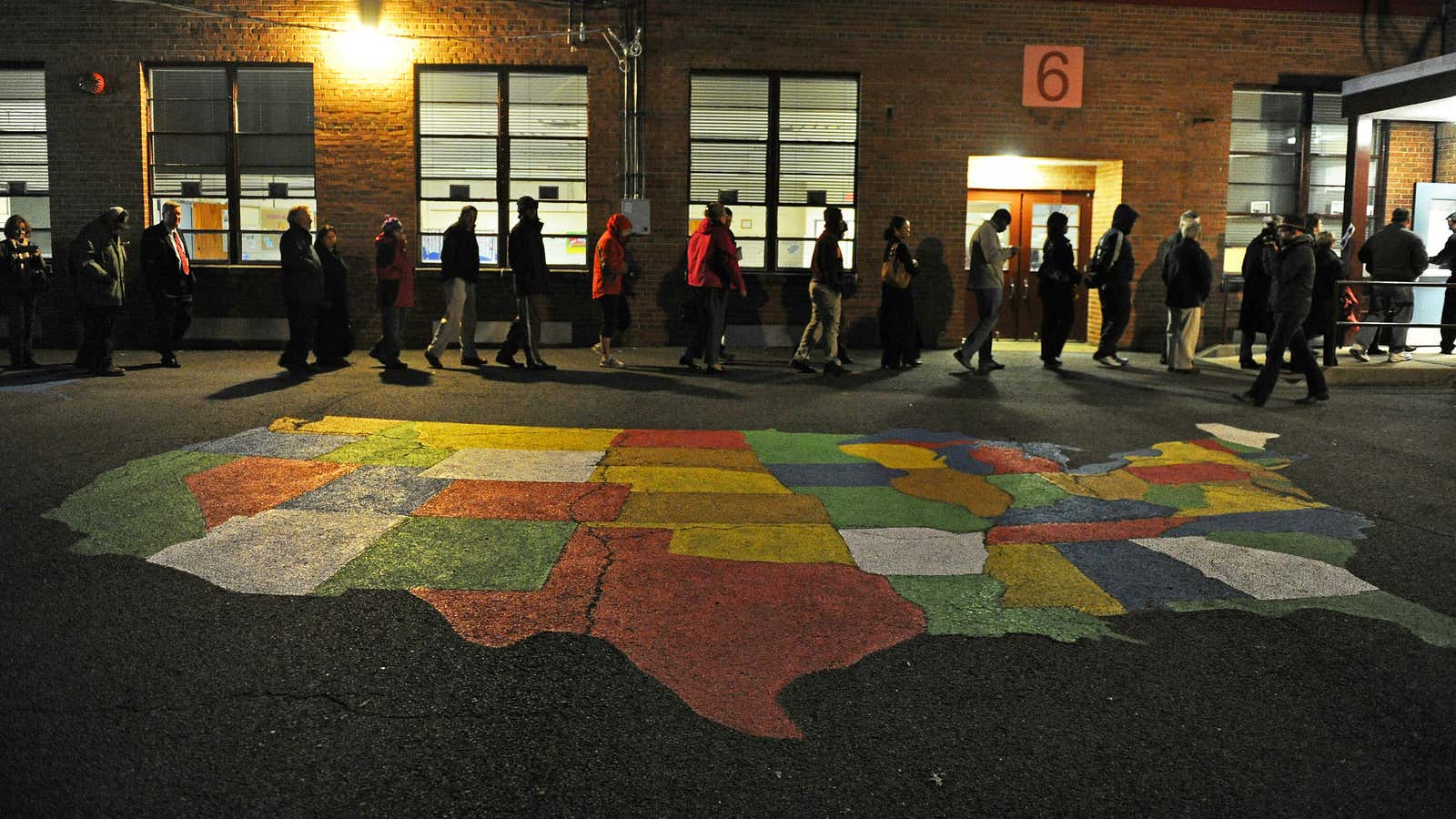No matter who wins the presidential race, we face the lamentable fact—and odd paradox—that the real loser will be the US economy because of the likelihood that legislative gridlock will prevent strong action on deficit reduction, tax reform or substantive progress on cutting our long-term national debt.
As a technology investor and business leader, I have a firm belief that you cannot effectively run an organization without teamwork and cooperation. It is a key tenet of breakthrough executive leadership. If the disastrous recent Superstorm Sandy on the eastern seaboard had one silver political lining it is that bipartisan political collaboration is possible, at least when there is no alternative.
We are in an odd and costly paradox. The great news is that we have the campaign behind us and finally are near a decision on the Presidency and the next Congress. On the other hand, because of the likely gridlock that will result from the split decision (almost no one is predicting an executive and legislative sweep for either party), we look forward to another period of legislative paralysis (at least until the next midterm congressional races in 2014) before we can break the impasse.
How can we be sure? Legislative leaders on both sides of the aisle promise us this. Senate Majority Leader Harry Reid (D-NV) called the 2013 House Republican agenda “Dead on Arrival.” And while congressional Republican Leaders Speaker John Boehner (R-OH) and Senator Mitch McConnell (R-KY) have been a little more circumspect publicly, it’s clear that the Republicans also are not about to cross party lines in droves.
When the candidates talk about moving “forward” and a “fresh start,” the first item of post-election economic business will be figuring a way to avoid the “fiscal cliff”—the expiration of tax cuts and automatic application of spending cuts that could be a huge impediment to the current uncertain recovery. The likeliest outcome to avoid the cliff is surely suboptimal: a “kick the can” approach that will postpone hard bargaining and tough tradeoffs.
This will continue to fuel the sort of economic uncertainty that stunts growth.
There have been “grand bargains” in the past. The Reagan-O’Neill economic tax and spending compromises of the early 1980s come to mind. What are the key elements? Balancing the budget and curbing government debt and interest payments. Simplifying the tax code—both corporate and personal. Expanding global balanced trade accords. Increasing effective investment in education. All of this could help create jobs and spur economic growth.
But with all the words spilt during the long campaign, there has been very little attention to the hard work of compromise that will be required to achieve another economic grand bargain. And unfortunately, public attention in the campaign has focused more on extremism than the center.
While it’s possible this all could change once the results are in, the smart money is betting on the opposite. That’s because political compromise can be personally costly, and in our current era of perpetual campaigning, another national election is only 24 months away.
